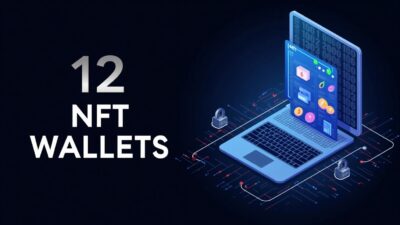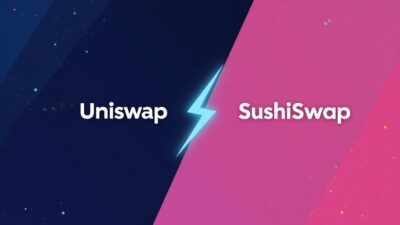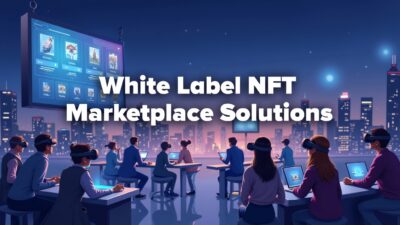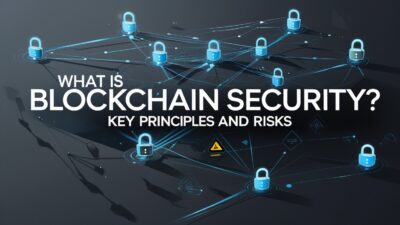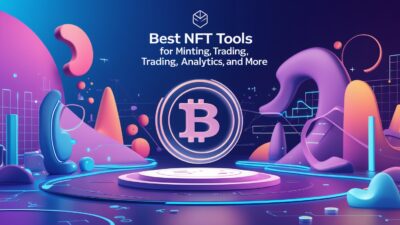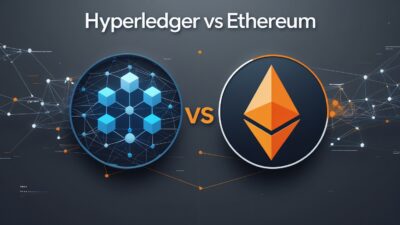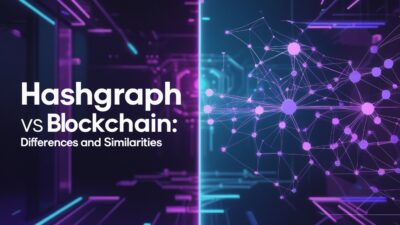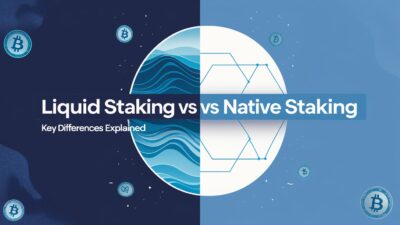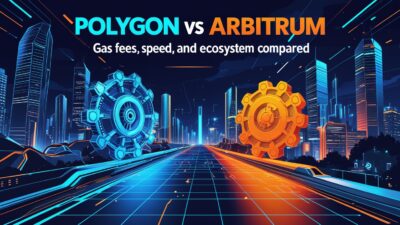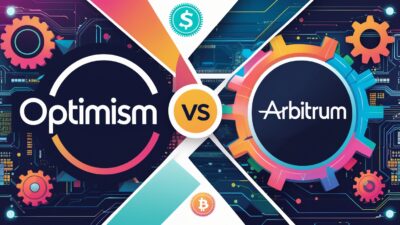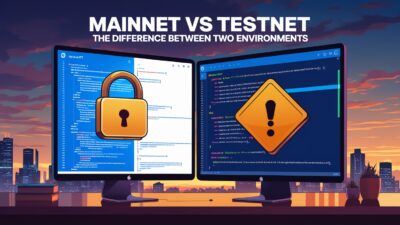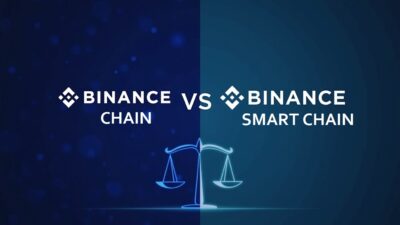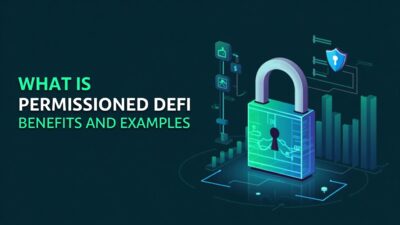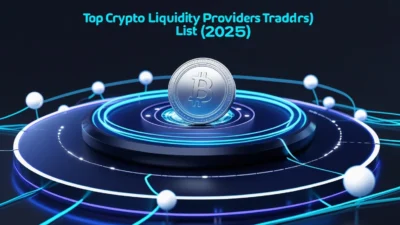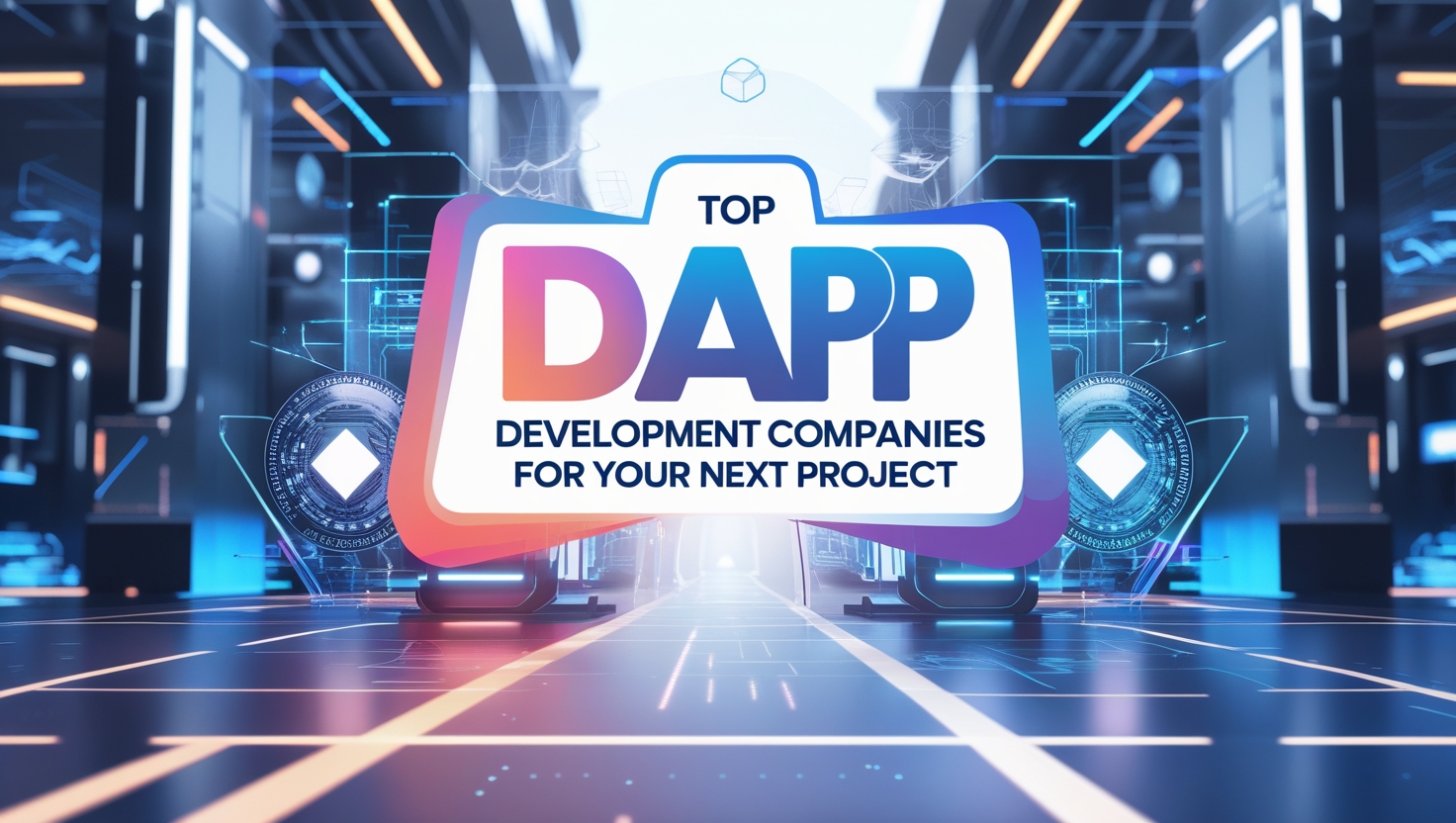
Decentralized applications, or dApps, have taken center stage in the world of digital finance. From DeFi platforms to NFT marketplaces and GameFi systems, dapps have transformed how we used to view entertainment and online engagement.
However, building a dApp is a complex project that requires technical expertise and high-level coding knowledge. This is where the development companies come into play. These companies not only act as contractors, but they also help you like partners during your dApp project development.
Choosing the right company for your dApp is a two-step process: defining your project and finding the perfect fit for it. Let’s explore the options by going through the 10 best dApp development companies we have shortlisted to help you fulfil your goals of becoming the next master of Web3 systems.
What Makes a Great dApp Development Company?
Choosing the right dApp development company can make or break your blockchain project. When selecting a dApp development company as your next partner, look for the following essential qualities.
- The company should have multi-chain expertise as different chains offer different trade-offs in speed, cost, and scalability.
- As smart contracts are the backbone of any dApp, your development partner company must be able to write secure and upgradeable contracts. They should have hands-on experience with Solidity, Rust, and Vyper.
- Inquire about the company’s UI/UX capabilities. They must have a mobile-first and responsive design.
- The company must have a proven track record of dApp development. They should have live dApps in production and be able to provide metrics, such as TVL, for their previous apps.
- Go for the companies that treat security as a core part of their development. They should be able to do internal testing and formal code reviews.
- The company must be able to provide post-launch support as blockchain systems evolve rapidly. They must offer monitoring tools, bug fixes, updates, and community management.
Top 10 dApp Development Companies to Consider in 2025
To find you the best dApp development partner, we have created a curated list of the 10 best companies that you can choose from. Each of these companies offers unique strengths to cater to your different needs.
| Company | Chain Supported | Use-Case Focus | Notable Clients | Location | Pricing |
| ConsenSys | Ethereum, Polygon, Linea | DeFi, NFTS, DAOs, CBDCs, Enterprise Blockchain | Bank of Korea, European Investment Bank, Mastercard, Covantis, Palm NFT Studio | Brooklyn, New York, USA | Varying Prices but Extremely Premium |
| LeewayHertz | Ethereum, Polygon, Solana, Avalanche, Hyperledger Fabric, Hedera Hashgraph | FeFi, NFTs, DAOs, Enterprise Blockchain, AI + Blockchain Integration | ESPN, TraceRx, GetThereReferral.com | Gurugram, India | $50K-$200K |
| Rejolut | Ethereum, Solana, Polygon, Near Protocol, Algorand, Hyperledger Fabric | DeFi, NFTs, DAOs, GameFi, Metaverse, Enterprise Blockchain | CoinSwitch, CoinDCX, BlocKApps, MyEarthID, XeniApp | Navi Mumbai, India | $25K-$150K |
| PixelPlex | Ethereum, Polygon, Solana, Tron, Polkadot, Stellar, Bitcoin, Hyperledger Fabric, HELO Blockchain | DeFi, NFTs, DAOs, GameFi, Enterprise Blockchain | Microsoft, BMW, Kakao, QTUM, Patientory, Circularr, Web3 Antivirus, StreamSettle, CYNDICATE | New York City, New York, USA | $50K-$999K |
| SoluLab | Ethereum, Polygon, Solana, Avalanche, Binance Smart Chain, Hyperledger Fabric | DeFi, NFTs, DAOs, GameFi, Enterprise Blockchain | Walt Disney, Goldman Sachs, Mercedes-Benz, University of Cambridge, Georgia Tech, Ambetter Health Insurance, ShopSmart, MusicalApp | Ahmedabad, India | $5K-$100K |
| Rapid Innovation | Ethereum, Polygon, Solana, Binance Smart Chain, Avalanche, Near Protocol | DeFi, NFTs, DAOs, GameFi, AI + Blockchain | Clients across eCommerce, Healthcare, and Fintech | USA | $25K-$150K |
| Unicsoft | Ethereum, Polygon, Solana, Tezos, Hedera, Binance Smart Chain, Hyperledger Fabric | DeFi, NFTs, DAOs, GameFi, Enterprise Blockchain | MakerDAO, AlphaWallet, Frontier Carbon Solutions, TMA International, Cure Group GmbH | London, England | $10K-$199K |
| Webisoft | Ethereum, Polygon, Solana, Cosmos-based Chains | DeFi, NFTs, DAOs, Web3 Ticketing & Loyalty, Supply Chain | Digital Doors, Amber Studio, Montefusco HVAC, Cogeco | Montreal, Canada | $50K-$199K |
| Appinventiv | Ethereum, Polygon, Binance Smart Chain, Solana, Hyperledger Fabric | DeFi, NFTs, DAOs, GameFi, Enterprise Blockchain | Domino’s, Adidas, IKEA, KFC, JobGet, Pride Mobility Products, Taxi Coin, Neem | Noida, Uttar Pradesh, India | $10K-$1.2 million |
| Cubix | Ethereum, Polygon, Binance Smart Chain, Solana, Cubix Chain, Hyperledger Fabric | DeFi, NFTs, DAOs, GameFi, Fintech, Identity | Walmart, Domino Earning World, Glamic Inc., Forex Board Game | West Palm Beach, Florida, USA | $50K-$199K |
1. ConsenSys

ConseSys is one of the most influential companies when it comes to dApp development. It has deep capabilities across DeFi, NFTs, DAOs, and GameFi. Their primary focus is on Ethereum, with Polygon and Linea as their secondary approaches.
ConsenSys doesn’t deal with Solana, Avalanche, or other non-EVM chains. They offer MetMask, Infura, Linea, Teku, Besu, and audit-readiness. ConseSys is best suited for enterprise-grade Ethereum dApps, DeFi platforms that need robust infrastructure, projects requiring deep protocol integration/staking, and developers building on zkEVM or EVM-compatible chains.
Pros:
- Deep Ethereum expertise and protocol-level access
- Robust infrastructure
- Strong security and staking tools
- Trusted by enterprises and governments
Cons:
- Limited support for non-EVM chains like Solana or Cosmos
- Not ideal for small startups needing MVP or no-code solutions
- Premium pricing and slower onboarding for smaller teams
- Less focus on GameFi or consumer-facing UX/UI design
2. LeewayHertz

LeewayHertz is one of the most versatile dApp development companies to consider in 2025. They are deeply involved in DeFi, NFTs, DAO development, and GameFi. LeewayHertz is highly proficient in Ethereum, Polygon, Solana, and Avalanche. While they are EVM-centric, they can also accommodate newer chains like Hedera and Hyperledger.
LeewayHertz offers audit-ready smart contracts, MVP development, custom dashboards, AI + blockchain integration, and no-code platforms. They are best suited for startups, enterprises, DeFi/NFT platforms, and platforms requiring cross-chain support.
Pros:
- Deep expertise across DeFi, NFTs, DAOs, and enterprise blockchain
- Strong UX/UI design and post-launch support
- Flexible across multiple chains and industries
- Transparent development process and timely delivery
Cons:
- Pricing may be higher than boutique firms
- GameFi capabilities are present, but not as specialized as some competitors
- Occasional project delays due to scope changes or communication gaps
3. Rejolut

Rejolut is a rising star in dApp development with a reputation for speed and technical depth. They are well-versed in DeFi, NFTs, GameFi, DAOs, Metaverse, and Web3. Rejolut’s primary focus is on Solana, Ethereum, and Polygon.
They also provide solutions for Near Protocol, Hyperledger, and Algorand. They offer audit-ready smart contracts, rapid MVP development, custom no-code, fundraising support, and dedicated dApp teams. Rejolut is best suited for startups, DeFi/NFT platforms, GameFi/Metaverse projects, and enterprises exploring private blockchain networks.
Pros:
- Fast turnaround times and agile development
- Strong multi-chain expertise across both EVM and non-EVM platforms
- Business-friendly approach with fundraising and tokenomics support
- Transparent communication and dedicated teams
Cons:
- May not be ideal for large-scale enterprise deployments requiring long-term support
- Pricing can vary widely depending on scope and speed expectations
- UX/UI design is solid, but not their primary differentiator compared to design-first firms
4. PixelPlex

PixelPlex is a globally recognized dApp development company known for its technical sophistication. They offer a strong portfolio across DeFi, NFTs, DAOs, GameFi, and Enterprise Blockchain. PixelPlex is a multi-chain company with experience in Ethereum, Polygon, Solana, Tron, Pokadot, Stellar, Bitcoin, and HELO Blockchain.
They offer audit-ready smart contracts, rapid MVP development, custom layer 2 solutions, web3 antivirus, and eco-friendly blockchain solutions. PixelPlex is ideal for Enterprises and startups needing scalable dApps, DeFi/NFT platforms with high transaction volumes, projects requiring custom layer 2 networks, and eco-conscious blockchain solutions.
Pros:
- Deep multi-chain expertise and protocol-level innovation
- Proven success with high-traffic platforms and enterprise clients
- Strong security practices and audit-readiness
- Ability to build custom Layer 2 networks and eco-friendly chains
Cons:
- Premium pricing may not suit early-stage startups
- Less focused on no-code or low-code solutions
- UX/UI design is just okay, nothing extraordinary
5. SoluLab

SoluLab is a well-established dApp development company known for its startup-friendly approach. They have built a strong reputation around DeFi, NFTs, DAOs, GameFi, and enterprise Blockchain.
SoluLab supports Ethereum, Polygon, Binance Smart Chain, Solana, Avalanche, and Hyperledger Fabric. They offer audit-ready smart contracts, rapid MVP development, no-code/low-code platforms, tokenomics consulting, and dedicated development pods.
They are best suited for startups launching DeFi, NFT, or DAO platforms, enterprises exploring blockchain pilots, projects needing fast MVPs & fundraising support, and teams looking for audit-ready smart contracts and scalable architecture.
Pros:
- Strong multi-chain expertise across EVM and non-EVM platforms
- Startup-friendly pricing and MVP development
- No-code/low-code tools for rapid prototyping
- Excellent post-launch support and scalability planning
Cons:
- May not be ideal for highly complex protocol-level innovations
- UX/UI design is solid, but not as specialized as design-first firms
- Premium features may cost extra depending on the scope
6. Rapid Innovation

Rapid Innovation is a fast-growing dApp development company known for its AI-driven blockchain solutions and startup-friendly approach. They offer expertise in DeFi, NFTs, DAOs, GameFi, and AI + Blockchain.
Rapid Innovation supports Ethereum, Solana, Polygon, Binance Smart Chain, Avalanche, and Near Protocol. They offer audit-ready smart contracts, rapid MVP development, AI-powered dApps, no-code/low-code platforms, and Web3 consulting.
They are best suited for startups building AI-enhanced dApps or launching quickly with MVPs, DeFi/NFT platforms that require scalable smart contracts, GameFi/DAO projects seeking fast execution, and enterprises exploring AI and blockchain integrations.
Pros:
- Strong multi-chain expertise and AI integration
- Fast MVP delivery and flexible engagement models
- No-code/low-code tools for rapid prototyping
- Business-friendly approach with fundraising and tokenomics support
Cons:
- May not be ideal for large-scale enterprise deployments requiring deep compliance
- Premium AI features may increase project cost
- UX/UI design is functional, but not its primary differentiator
7. Unicsoft

Unicsoft is a seasoned dApp development company known for its enterprise-grade delivery and full-cycle blockchain services. Their dApp capabilities span DeFi, NFTs, DAOs, GameFi, and Enterprise Blockchain.
Unicsoft focuses on Ethereum, Polygon, Hyperledger Fabric, Solana, and Binance Smart Chain. They offer audit-ready smart contracts, MVP development, custom blockchain consulting, AI + Blockchain integrations, and no-code platforms.
Unicsoft is best suited for enterprises integrating blockchain, startups building MVPs with a focus on scalability, DeFi/NFT platforms that require audit-ready smart contracts, and projects needing AI + blockchain synergy.
Pros:
- Deep experience in blockchain and enterprise software
- Strong smart contract development and audit-readiness
- Flexible across public and private chains
- Excellent post-launch support and long-term maintenance
Cons:
- May be priced higher than boutique firms
- UX/UI design is solid, but not their primary differentiator
- Less focused on rapid experimentation compared to startup-first agencies
8. Webisoft

Webisoft is a high-performance development company known for precision engineering and cross-chain capabilities. They have a strong reputation in building DeFi, NFTs, DAOs, GameFi, and Enterprise Blockchain.
Webisoft supports Ethereum, Polygon, Solana, and Binance Smart Chain. They offer audit-ready smart contracts, custom dApp development, rapid MVP delivery, and wallet integration.
They are the best fit for startups launching DeFi/NFT platforms with a need for security, enterprises integrating blockchain into supply chain, GameFi/DAO projects requiring custom smart contracts & wallet integration, teams looking for cross-chain compatibility and low gas optimization.
Pros:
- Strong multi-chain expertise and smart contract optimization
- Fast, secure, and scalable dApp delivery
- Excellent wallet and token integration capabilities
- Proven success across DeFi, NFTs, and enterprise blockchain
Cons:
- May not be ideal for ultra-low-budget projects
- No-code tools are not offered directly
- Limited visibility into post-launch support unless scoped explicitly
9. Appinventiv

Appinventiv is a global digital transformative company with a strong foothold in blockchain and dApp development. They offer end-to-end blockchain development services with deep specialization in DeFi, NFTs, DAOs, GameFi, and Tokenization.
Appinventiv supports Ethereum, Polygon, Binance Smart Chain, Solana, and Hyperledger Fabric. They offer audit-ready smart contracts, rapid MVP development, tokenomics consulting, custom DAO frameworks, no-code platforms, and AI + Blockchain integration.
Appinventiv is ideal for startups launching DeFi/NFT platforms with a need for scalability, enterprises digitizing assets/integrating blockchain into existing systems, projects requiring audit-ready smart contracts & regulatory compliance, and teams looking for tokenomics, fundraising, and go-to-market strategy support.
Pros:
- Deep expertise across DeFi, NFTs, DAOs, and tokenization
- Strong multi-chain capabilities and enterprise-grade delivery
- Excellent support for MVPs, audits, and fundraising strategy
- Proven success with global brands like Domino’s and Adidas
Cons:
- Premium pricing may not suit early-stage bootstrapped startups
- No-code tools are not offered directly
- May require longer timelines for complex enterprise integrations
10. Cubix

Cubix is known for its scalable architecture and cross-platform capabilities. They offer full-cycle dApp development with a strong portfolio across DeFi, NFTs, DAOs, GameFi, and Supply Chain.
Cubix focuses on Ethereum, Polygon, Binance Smart Chain, Solana, and Hyperledger Fabric. They offer audit-ready smart contracts, end-to-end development, cross-platform compatibility, scalable architecture, and UI/UX design.
Cubix is ideal for startups launching DeFi/NFT platforms with scalability in mind, enterprises integrating blockchain into identity systems, projects requiring audit-ready smart contracts, and teams looking for long-term support.
Pros:
- Strong multi-chain expertise and smart contract development
- Full-cycle delivery from concept to launch
- High-quality UI/UX design and cross-platform support
- Proven success in DeFi, GameFi, and enterprise blockchain
Cons:
- Premium pricing may not suit bootstrapped startups
- No-code tools are not offered directly
- May require longer timelines for complex, multi-chain integrations
How to Choose the Right dApp Development Company for Your Project
Choosing the right dApp development company can make or break your Web3 project. Make sure to look for the following factors before selecting the company for your dApp project.
- Define your project’s scope clearly. This includes deciding on your project type, the type of blockchain you want to develop it on, and your budget for the project.
- Always evaluate the agency’s credentials. Look for projects similar to yours, check their multi-chain development experience, request live demos, review their client reviews, ensure they deliver audit-ready smart contracts, assess their response time and assess their communication.
- Ask the right questions before signing the contract. These questions may include inquiring about the company’s experience or what kind of post-delivery services they provide.
- The timeline is the most important part when selecting a company for your dApp project. See if they can deliver within your time limit or not. Be open about it.
How Much Does it Cost to Develop a dApp?
dApp development costs can vary wildly depending on your goals and requirements. There is no one-size-fits-all situation in this case. We will be discussing the factors that affect the cost of a dApp project in detail below.
Scope of the Project
The larger the scope of your dApp project, the higher the cost will be. It is simple mathematics.
| Project | Cost |
| Simple NFT Minting App | $5,000 – $25,000 |
| Basic DeFi Staking App | $20,000 – $50,000 |
| Full NFT Marketplace | $50,000 – $150,000 |
| DAO Governance Platform | $40,000 – $100,000 |
| GameFi Ecosystem | $100,000 – $500,000 |
| Enterprise Blockchain | $150,000 – $1M+ |
Smart Contract Complexity
Smart contracts’ complexity directly affects the cost of the dApp project.
- Basic token contracts cost between $2,000 – $10,000
- Multi-signature wallets, staking, and governance cost $10,000 – $50,000
- Cross-chain or Layer 2 integrations usually cost $50,000+
- Security audits cost $10,000 – $50,000+
Custom UI/UX Design
The more complex and custom the UI/UX design is, the more your dApp project is going to cost you. Some rough estimates are.
- Basic UI costs around $5,000 – $15,000
- Custom UX with animations and mobile optimization costs around $15,000 – $50,000
- Gamified interfaces or metaverse-ready designs cost upward of $50,000
Team Size and Location
DApp development costs vary depending on the location where the company is based and how much manpower they are willing to invest.
| Region | Hourly Rate |
| North America | $100 – $149/hr |
| Western Europe | $50 – $200/hr |
| Central Europe | $25 – $100/hr |
| South America | $35 – $70/hr |
| South Asia | $20 – $45/hr |
Post-Launch Maintenance
Don’t forget the ongoing costs, as post-launch maintenance is of utmost importance.
- Bug fixes & updates: $1,000 – $5,000/month
- Server & node hosting: $500 – $2,000/month
- Security patches & audits: $5,000 – $20,000/year
- Community & DAO management: Variable, often outsourced
Summing Things Up
The aApp project is a massive undertaking and a very costly one at that. Before choosing your development partner, it is extremely important to check their credentials and see if their goals align with yours. For this reason, we have provided a detailed comparison table for readers to choose the one that best matches their needs.
If you want to learn more about dApps and how Web3 ecosystems work, join Dypto-Crypto right now. We offer top-of-the-class blog posts and guides for free. We also deliver a weekly newsletter directly to your email, chock-full of crypto news. Level up your game and knowledge with our paid courses and become a part of the most amazing web3 community globally.
FAQs (Frequently Asked Questions)
Q: Which blockchain platform is best for building dApps?
A: Ethereum, closely followed by Polygon and Solana.
Q: What should I look for when choosing a dApp development company?
A: Project fit, technical expertise, smart contract, security capabilities, design, user experience, communication, responsiveness, client reviews, reputation, and pricing transparency.
Q: Can I launch a dApp as an MVP (Minimum Viable Product)?
A: Absolutely. In fact, launching your dApp as an MVP is one of the smartest moves as it allows you to reach the market faster. It costs low and comes with lower risks.
Q: What if my dApp idea is too small for big companies—will they still work with me?
A: Yes. If your dApp idea is clear and scalable, most big companies will love to work with you.
Q: Can I integrate my existing Web2 app with a dApp?
A: Yes, you can connect your web2 app with a dApp by using libraries like web3.js, Solana web3 SDK, webhooks, and event listeners.

